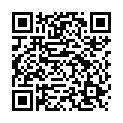|
|
|
| Module code: FT29 |
|
8V (8 hours per week) |
|
8 |
| Semester: 6 |
| Mandatory course: yes |
Language of instruction:
German |
Assessment:
Varies
[updated 30.09.2020]
|
FT29 Automotive Engineering, Bachelor, ASPO 01.10.2011
, semester 6, mandatory course
FT29 Automotive Engineering, Bachelor, ASPO 01.10.2015
, semester 6, mandatory course
FT29 Automotive Engineering, Bachelor, ASPO 01.04.2016
, semester 6, mandatory course
FT29 Automotive Engineering, Bachelor, ASPO 01.10.2019
, semester 6, mandatory course
|
120 class hours (= 90 clock hours) over a 15-week period.
The total student study time is 240 hours (equivalent to 8 ECTS credits).
There are therefore 150 hours available for class preparation and follow-up work and exam preparation.
|
Recommended prerequisites (modules):
FT19.1 Passive Vehicle Safety
[updated 03.04.2019]
|
Recommended as prerequisite for:
FT32 Bachelor Thesis
[updated 17.07.2015]
|
Module coordinator:
Studienleitung |
Lecturer:
Professor/innen des Studiengangs
[updated 03.04.2019]
|
Learning outcomes:
After successfully completing this module, students will be familiar with the technology of specific vehicles, such as agricultural machinery, trucks, motorcycles, etc. They will have deepened their knowledge in the field of vehicle systems (automatic transmissions, tires, brake systems, steering systems, radio technology, etc.). They will be able to work independently on special topics in automotive engineering, such as designing and dimensioning a brake system or optimizing the driving dynamics of motorcycles.
[updated 30.09.2020]
|
Module content:
Lectures and courses in accordance with the annual catalog of compulsory electives:
Courses of various types on specific vehicles (agricultural machinery, trucks, motorcycles, ...) and vehicle systems (gas vehicles, automatic transmissions, tires, braking systems, steering systems, radio technology, etc.)
[updated 30.09.2020]
|
Teaching methods/Media:
Diverse
[updated 30.09.2020]
|
Recommended or required reading:
Depends on topic
[updated 30.09.2020]
|


